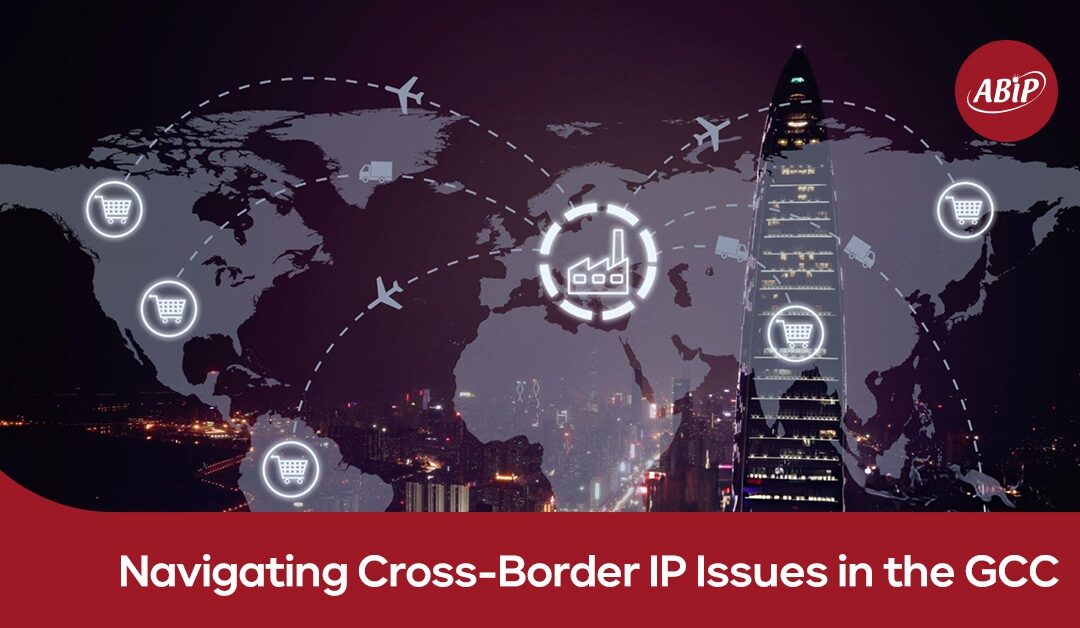In today’s global economy, international businesses operating in the Gulf Cooperation Council (GCC) region—comprising Bahrain, Kuwait, Oman, Qatar, Saudi Arabia, and the United Arab Emirates—face a variety of IP issues that make safeguarding intellectual property (IP) complex. The GCC represents a promising market with substantial opportunities, but differences in intellectual property laws across these countries bring current issues in intellectual property law to the forefront. This guide provides key strategies for managing intellectual property rights issues and overcoming IP challenges in the GCC.
1. Understanding the Current Issues in Intellectual Property Law
The six GCC countries have unique intellectual property laws, though they share some regional agreements, such as the GCC Patent Office and the Gulf Cooperation Council Trademark Law. However, due to varied enforcement practices, businesses face unique current issues in intellectual property law. Understanding these frameworks is crucial for mitigating IP issues that international companies often encounter.
Key Considerations:
Patent Protections:
While patents filed with the GCC Patent Office offer some regional coverage, companies often find that individual patent registrations in each country provide stronger protection.
Trademark Protection:
While the Gulf Cooperation Council Trademark Law seeks to harmonize trademark protection, enforcement varies, creating challenges of intellectual property for companies trying to safeguard their brands consistently across all member states.
2. Common IP Challenges and Artificial Intelligence Intellectual Property Issues in the GCC
As businesses expand in the GCC, they must navigate unique intellectual property rights issues while keeping up with new developments in IP law, such as artificial intelligence intellectual property issues and antitrust intellectual property concerns.
Diverse Legal Systems:
Each GCC country enforces its own IP laws, making strategies that work in one country, like the UAE, potentially ineffective in others, such as Saudi Arabia. These legal distinctions complicate IP protection and increase IP challenges.
Enforcement Issues:
Enforcement remains inconsistent across the GCC. While some countries have strong IP enforcement mechanisms, others may lack the resources or infrastructure for effective IP protection, which increases intellectual property rights issues.
Counterfeit Products:
Counterfeiting affects many sectors, from luxury goods to technology. Businesses in the GCC must actively monitor the market for counterfeit goods to safeguard their IP. Artificial intelligence intellectual property issues are also emerging as AI technologies become prevalent, complicating IP claims around software and data usage rights. Anti counterfeit services.
3. Protecting IP Rights Across Borders
For businesses facing IP issues in multiple GCC countries, a proactive, region-specific strategy is key to overcoming challenges of intellectual property.
Register in Each Country:
While regional agreements like the GCC Patent Office can help streamline protection, businesses often find that registering IP rights individually in each GCC country provides stronger enforcement capabilities.
Local Representation for IP Guidance:
Hiring local IP attorneys who understand regional antitrust intellectual property concerns can be invaluable. These professionals offer insights into each market, assist with IP registrations, and provide strategic advice on managing intellectual property rights issues.
Continuous Market Monitoring:
Regularly monitoring the market for potential IP infringements enables businesses to proactively address IP issues before they escalate, which is especially important in regions where enforcement may be less predictable.
4. Dispute Resolution Mechanisms for IP Conflicts
Understanding dispute resolution options in the GCC is essential for addressing intellectual property rights issues. Various mechanisms, including arbitration, mediation, and litigation, can help businesses navigate IP challenges effectively.
Mediation and Arbitration:
Many GCC countries favor mediation and arbitration for IP disputes, offering cost-effective and efficient alternatives to litigation, especially in cases of antitrust intellectual property disputes.
Litigation:
When arbitration or mediation fails, litigation might be necessary. Familiarity with each GCC country’s litigation processes is important for managing potential current issues in intellectual property law and navigating regional IP systems.
5. Best Practices for Overcoming Intellectual Property Rights Issues in the GCC
A robust IP strategy that addresses IP issues and adapts to regional requirements will help businesses succeed in the GCC.
Educate Teams on IP Challenges:
Ensure that your team understands the importance of IP protection and local GCC laws. As artificial intelligence intellectual property issues evolve, training employees on IP compliance and digital rights is critical.
Develop a Comprehensive IP Protection Plan:
Establish an IP strategy that includes regional registration, proactive market monitoring, and dispute resolution processes. This approach minimizes intellectual property rights issues and keeps businesses prepared for changes in GCC intellectual property law.
Stay Updated on Legal Changes:
Given that current issues in intellectual property law are dynamic, keeping abreast of updates to GCC IP regulations will ensure compliance and protect valuable assets.
In A Nutshell
Successfully navigating IP challenges across the GCC requires businesses to develop a detailed, region-specific approach. From understanding each country’s IP laws to staying ahead of emerging artificial intelligence intellectual property issues, a proactive stance is essential. By implementing these best practices and partnering with IP experts, businesses can overcome intellectual property rights issues and thrive in this competitive region.
For more guidance on addressing intellectual property challenges in the GCC, reach out to Abutaha Intellectual Property. Our experts offer insights into the complex GCC IP landscape, helping you safeguard your innovations and ensure compliance across borders.

